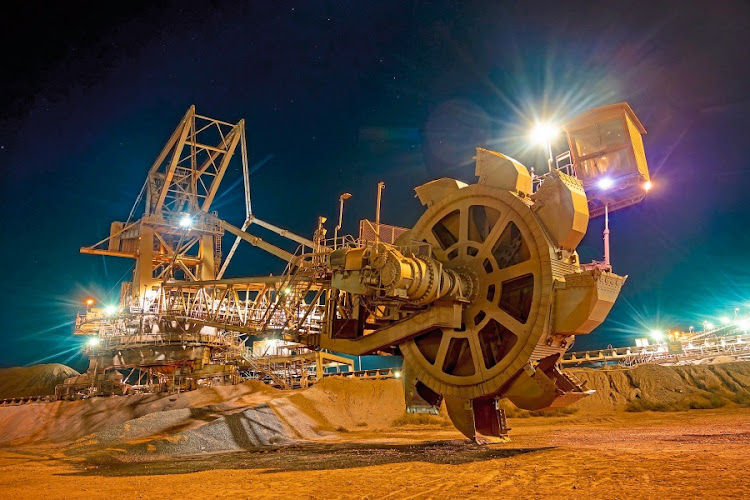Mining Other

What SA can learn from Saudi Arabia’s mining success

The recent publication of the Fraser Institute’s annual survey of global mining jurisdictions has once again cast an unflattering light on SA’s mineral regulatory regime while providing a glowing report on the Kingdom of Saudi Arabia, one of the world’s newest mining destinations.
SA came in 68th out of 82 countries surveyed, with a ranking of 41% on the investment attractiveness index, and a desultory 19% or 70th out of 82 on the policy perception index. By contrast, Saudi Arabia, not ranked before, scored highly this year after implementing sweeping mineral regulatory reforms over the past four years. It scored 71% on the investment attractiveness index, ranking 23rd out of 82 countries surveyed, and 79% on the policy perception index, which was 20th out of 82.
Saudi Arabia’s success as a global mining jurisdiction did not happen by accident. Mining is a key pillar of the kingdom’s Vision 2030, which aims to triple the sector’s contribution to GDP and create 200,000 jobs directly and indirectly. To this end the kingdom has implemented several sectoral structural reforms to stimulate private sector investment by intensifying exploration, establishing a comprehensive database of the country’s mineral resources, reviewing its licensing procedures, investing in infrastructure, developing new funding methods and initiating Saudi centres of excellence. A key part of these reforms was the kingdom’s Mining Investment Law, an implementation of regulations and guidelines that came into force in 2021.
With SA’s new mining cadastral system delayed yet again until October (and then only initially for the Western Cape), after originally being promised in 2021, delays in the mineral licensing system remain endemic. In 2023/24, the department of mineral & petroleum resources received 5,525 applications for mining rights, with not one finalised. Applications for prospecting rights can take up to a year to process, while mining rights can take 18 months to two years. Until the new cadastral system is up and running, the system remains partly paper-based, decentralised and subject to poor interdepartmental co-ordination, despite the promise of a one-stop-shop for all licensing applications.
Despite its promise of promoting economic growth and sustainable development, the Mineral Resources Development Bill published by the department in late May and now undergoing internal review following public consultation, is unlikely in its current form to address what amounts to an investment strike in the SA mining sector. Exploration expenditure, the oxygen of mining, in SA in 2024 amounted to $43m, half of the $88m it was in 2018. Canada, by contrast, received about $3bn in 2024.
What can be done about this, and how did Saudi Arabia get it right when SA appears to have got it so wrong? As mining is a high-risk, capital-intensive industry with long lead times between exploration and production, the rules of the game need to be pellucidly clear, and not subject to vague administrative (or ministerial) discretion. In addition to geology, this requires the following:
Security and predictability of tenure, with objective criteria for the granting of licences. The regulatory system should be stable and fair to promote transparency and openness.
An open online cadastral system that is mandatory for all licensing applications.
Strict time limits for the granting of all licences, preferably written into the mining code or regulations.
A predictable, stable and globally competitive fiscal regime that avoids windfall profit taxes as well as excessive free state carried interest in mining licences. Governments should receive a fair share of resource rents, and mining companies should receive a reasonable return on their investments.
An effective, well-resourced and technically competent regulator. Many African mining jurisdictions have established independent regulators in the form of minerals commissions — Ghana, Liberia, Angola, Malawi, Tanzania and most recently Zambia — to professionalise and streamline the licensing process.
Rigorous environmental and social performance standards. Environmental regulation should be effective, practical and predictable, and mine rehabilitation protected through a proper system of environmental guarantees.
To maintain a company’s social licence to operate communities should benefit from mining through local employment and procurement requirements that are neither unduly onerous nor overly prescriptive. Sometimes this can be combined with benefit sharing agreements involving the tax-deductible payment of about 1% of a mine’s gross sales revenues.
An effective, transparent dispute resolution mechanism, with protection from expropriation and arbitrary administrative action.
A stable partnership between investors and host governments by providing certainty and mutual benefit while avoiding excessive free state carries, rigid domestic ownership rules and regulatory uncertainty.
Opaque, unpredictable and unstable regulatory regimes are inimical to mining investment, especially in an era of resource nationalism currently besetting the gold mining sector in the Sahel coup belt — Mali, Burkina Faso and Niger — which has led to an unprecedented era of mine nationalisation and the concomitant investment flight.
Even if one regards this trend as aberrant, excessive free state carries, mandatory domestic ownership with onerous local procurement requirements, increasingly combined with export bans on unprocessed minerals, increase the cost of capital and the risk-reward calculus.
SA could learn from Saudi Arabia as much as from its fellow AU member, Morocco, now ranked by the Fraser Institute as the leading mining jurisdiction in Africa with a score of 74% and 18th out of 82 globally (as well as the world’s second biggest phosphate producer after China, but with 70% of global reserves).
Like Saudi Arabia, Morocco revised and modernised its mining code in 2015 while encouraging foreign direct investment, implementing probusiness policies and streamlining its administrative procedures. A combination of this, with excellent infrastructure, logistics and power, has propelled Morocco to the top of African mining jurisdictions.
Leon is a partner at Herbert Smith Freehills Kramer. He advised Saudi Arabia on its mining investment law and implementation regulations. This article is partly based on his remarks at a Chatham House colloquium on advancing transparent and just mining governance for development in Africa, held in Johannesburg on August 6.












